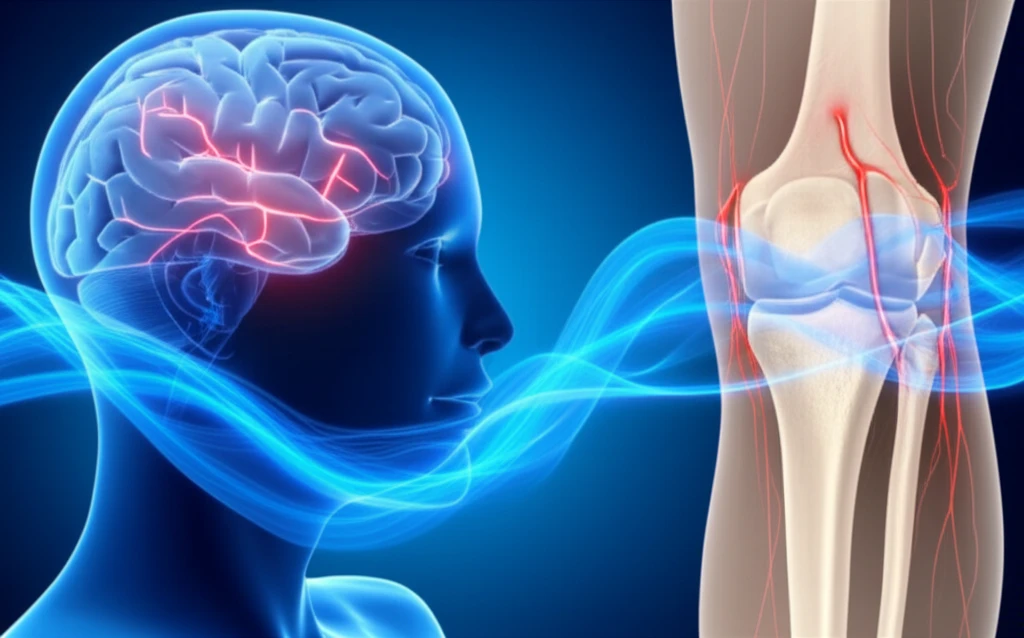
Unlocking Knee Pain Relief: How Chondroitin Sulfate Tames Brain's Pain Response
"Discover the innovative approach to osteoarthritis pain management using Chondroitin Sulfate and its impact on brain activity, offering new hope for those seeking relief from chronic knee pain."
Knee osteoarthritis (OA) affects millions, causing chronic pain and disability that significantly impact quality of life. Traditional pain management often relies on medications with potential side effects, highlighting the need for alternative, effective treatments.
Functional MRI (fMRI) has emerged as a powerful tool in pain research, allowing scientists to visualize and measure brain activity in response to painful stimuli. This technology offers new insights into how pain is processed and how treatments can modulate this response.
Chondroitin Sulfate (CS), a naturally occurring compound found in cartilage, has shown promise in alleviating OA symptoms. This article explores a recent study that used fMRI to investigate how CS affects brain activity related to knee pain, providing a deeper understanding of its potential benefits.
How Does Chondroitin Sulfate Reduce Brain’s Response to Knee Pain?

A randomized, double-blind clinical trial was conducted to assess the effects of CS on brain activity in patients with knee OA. Participants received either CS (800 mg/day) or a placebo for four months. Before and after treatment, fMRI scans were performed while applying controlled painful pressure to the patella surface and knee medial interline.
- Reduced Subjective Pain: Patients receiving CS reported a tendency toward reduced subjective pain during the patella pressure test, although this finding was not statistically significant (p=0.077).
- Larger Activation Reduction in PAG: fMRI results showed a larger reduction in activation in the CS group compared to the placebo group in the PAG, a key region involved in pain modulation. This reduction was statistically significant (p<0.05).
- Activation Reduction in Somatosensory and Motor Cortices: The CS group exhibited significant activation reduction in the primary somatosensory cortex and extending to the primary motor cortex and posterior supplementary motor area. This suggests CS may influence the brain's sensory and motor responses to pain.
- No Effects on Knee Interline Pressure Test: The study found no significant effects of CS on brain activity in response to painful stimulation of the knee interline.
The Promise of Chondroitin Sulfate for Osteoarthritis Pain
The study provides evidence that CS can influence brain activity related to pain processing in knee OA. By reducing activation in key brain regions involved in pain perception, CS may offer a novel approach to pain management. Given that the pain generated by pressing down the patella surface is more selectively related to sensitization processes in the bone and the junction between bone and cartilage, further studies are required.
